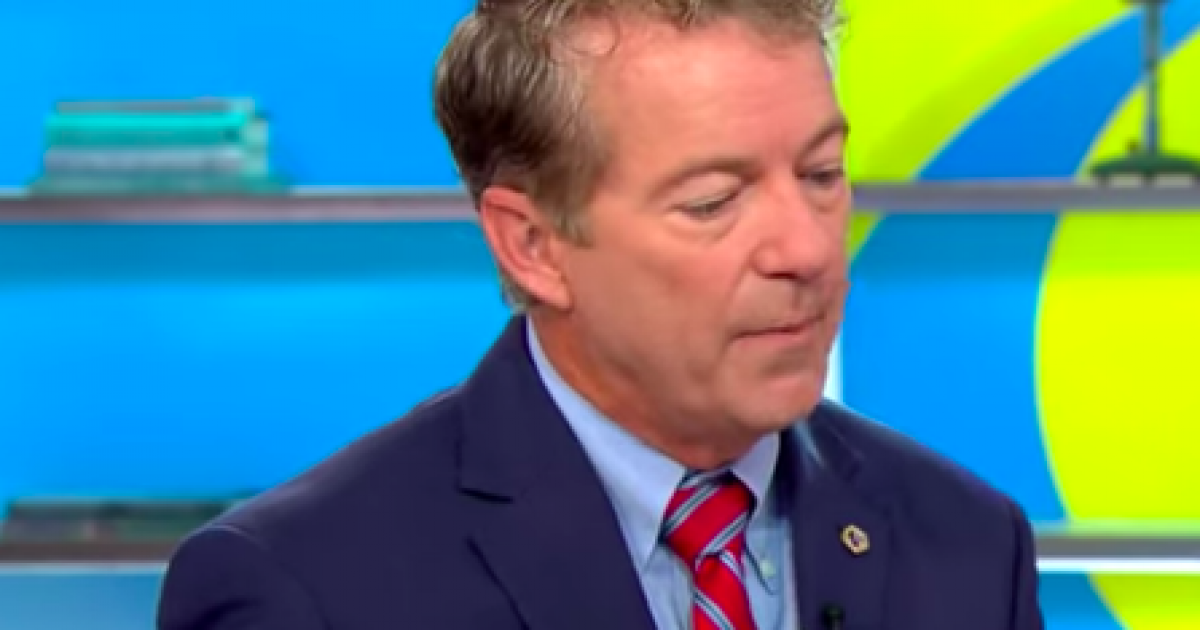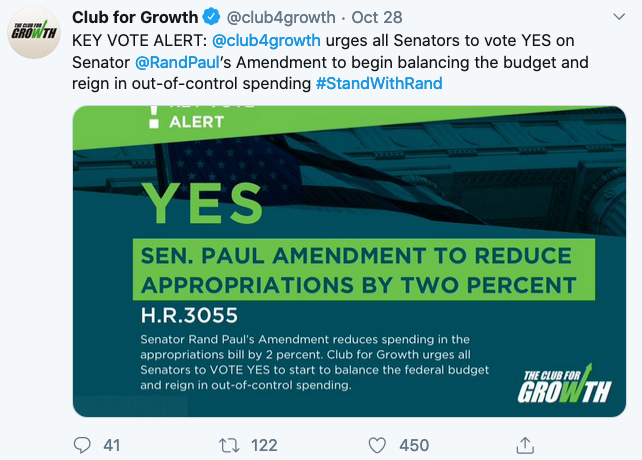
On Monday, the Senate rejected Rand Paul’s amendment to cut spending in a domestic funding package that lawmakers were debating.
“His amendment will slash spending below the bipartisan budget act that we all negotiated,” Leahy said before the Senate took a vote on the amendment.
This amendment represented the most recent attempt by Paul to cut spending, only to be derailed by his Senate colleagues. The Senate previously voted down Paul’s balanced budget proposal back in June.
The Club for Growth, a fiscally conservative non-profit group, tried to get people to rally around Paul’s amendment before the vote on Monday. They informed Senators that their vote on the amendment would be factored in the organization’s legislative scorecard.
“KEY VOTE ALERT: @club4growth urges all Senators to vote YES on Senator @RandPaul’s Amendment to begin balancing the budget and reign in out-of-control spending #StandWithRand,” Club for Growth tweeted before the vote on Monday.

This domestic spending package is the first 2020 spending bill the Senate is taking up.
Senate Majority Leader Mitch McConnell proceeded to vote on this bill on Monday evening, setting the state for the full Senate to greenlight it by the end of the week. Then McConnell is expected to bring up a massive defense spending bill.
“Our commanders need funding. Our men and women in military need support. Congress needs to do its job. So later this week, the Senate is going to vote again to advance defense funding,” McConnell stated on Monday.
It appears that fiscal conservatism is pretty much dead in Washington, D.C.
For advocates of fiscal sanity, Paul is the only person in the Senate they can reliably count on to vote for less spending.



